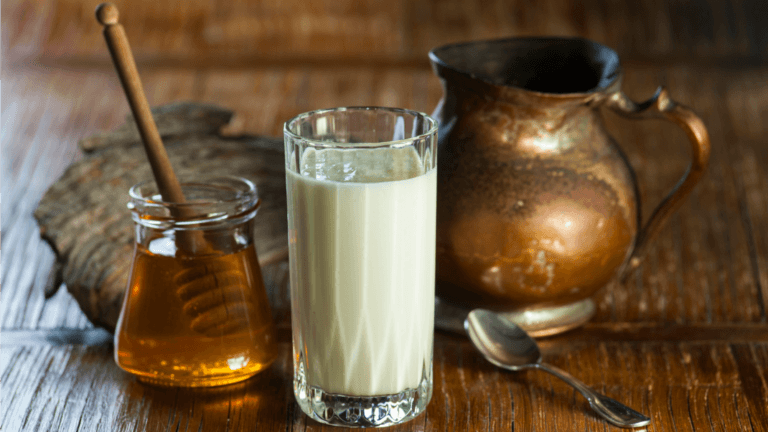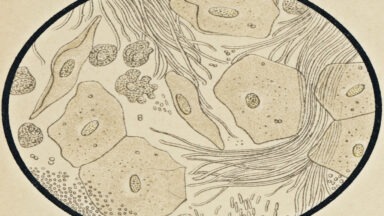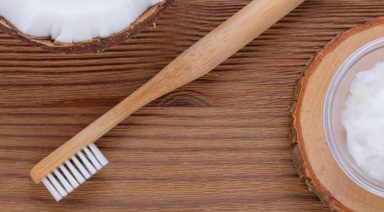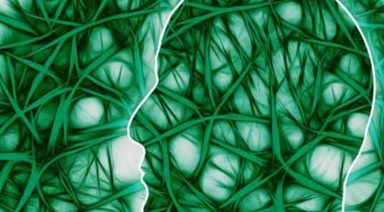The Health Benefits of Kefir

Have you heard of kefir also know as magic milk or miracle milk? If not, don’t worry, you are not alone. Kefir still has not made a big splash in the health industry, but it’s heading that way!
Kefir is a yogurt-like drink that is made from kefir grains, simply by fermenting milk. It has a slightly sour and carbonated flavor and is a rich source in essential vitamins, minerals, amino acids and contains beneficial bacteria and yeast.
Kefir was first scientifically researched over 100 years ago by Nobel Prize winner, Elie Metchnikoff, who was obsessed with aging. His theory argued that aging was caused mainly by toxic bacteria in the gut; and that lactic acid, found in kefir and sour milk, or probiotics, could prolong life. Based on this theory he drank kefir everyday and wrote extensively on the benefits of drinking kefir regularly.
So what are the benefits of this magic milk you might ask, well it is far too many to express in any other way than a simple list:
- Alleviates intestinal disorders
- Promotes bowel movement
- Protects the prostate
- Regulates metabolism through improved digestion
- Regulates blood pressure
- Improves blood circulation
- Eliminates bad bacteria
- Has anti-fungal properties to promote healing of various dermatological issues
- Regulates bile to improve live and gallbladder functions
- Increases energy
- Flushes our pathogens
- Boosts the immune system
Kefir grains originated in the Caucasus Mountains with a very romantic and exuberant story as to how it found its way to the rest of the world. The most popular legend claims kefir grains were a gift to Orthodox Christians from Prophet Mohammed, who strictly forbade their dissemination to anyone other than the regions natives, because, he claimed, they would lose their magical powers. For centuries it was a highly held secret.
Marco Polo also mentioned kefir in his travel accounts, but it remained unknown through most parts of the world until the late 1800’s when former Soviet Union doctors heard of a magical remedy that would cure the ailments of their patients. They lobbied the most prominent dairy farmers in Russia for its discovery from the Caucasus Mountains. The two brothers who owned Moscow Dairy took on the task, banking on being the only kefir producers in the region. They sent a beautiful woman by the name of Irina Sakhavarova to convince a prince in the Caucasus Mountains to give her the grains along with the recipe. Although the Prince became enamored with Irina, he was afraid of retribution for giving away the Prophets Grains, so he refused and Irina headed back to the Soviet Union. However, on her way home she was kidnapped by mountain tribesman and brought back to the Prince. It was local custom to steal a bride, so when Irina was brought back, she was told she had to marry the Prince. A reconnaissance mission by the brothers who had sent her there, saved her from the forced marriage. The Tsar, hearing of the ordeal, ordered the Prince to give Irina the grains to make up for the embarrassment and hassle he had caused her.
Kefir grains made it back to the Soviet Union in 1908, but were not successfully produced until the 1930’s. Issues varying from the recipe and the amount of time to ferment kept Moscow Dairy from successfully and commercially producing kefir.
Today, kefir is available in most supermarkets, but because it is pasteurized and homogenized during manufacturing it loses its beneficial bacteria hence is not as powerful as home-made kefir. Making kefir at home is pretty simple as long as you can find the grains. The grains are sold online or if you are lucky you might have someone in your circle that already makes it at home. The grains, which look like tiny little cauliflowers, do multiply after a few rounds of fermentation, so it is easy to reproduce.
The people of the Caucasus claim kefir to be the secret to their longevity and health. Although this theory probably needs to be studied further, these grains that have been handed down from generation after generation do have a nutritional value and are definitely worth a try.
Gaia's Top 10 Videos on Holistic Health and Lifestyle

How do you discover your own path of well-being and vitality to achieve optimal health? The road is different for everyone and is an enduring, life-long mission. We invite you to sit with experts, from various health-related fields, who share the fruits of their research on nutrition, supplements, dentistry, detoxing, and unlocking our full health potential. What you may discover could change every aspect of your life.
1. The Gut Movie
In The Gut Movie, we follow the journey of journalist and researcher Kale Brock as, in the quest to discover whether the “optimal microbiome” does indeed exist, he travels from Australia to Namibia to live with The San, an ancient hunter-gatherer people living traditionally from the land. During the excursion, Brock monitors his own microbiome and how it changes in conjunction with the new surroundings and takes microbiome samples of The San to gauge the significant differences in microbiota present across cultures.
With expert commentary by leading gastroenterologist Professor Thomas Borody, molecular geneticist Dr. Margie Smith, immunology researcher and expert Professor Mimi Tang, naturopath and chiropractor Dr. Damian Kristof and others, The Gut Movie provides an insightful yet entertaining look at the explosive research of the gut and its impact on human health.





































